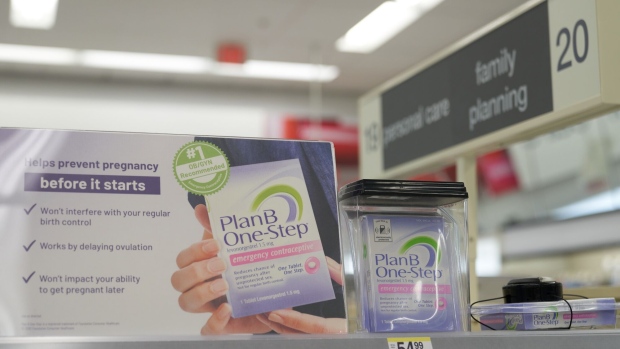Jun 26, 2024
Plan B Use Plunges in US States That Enacted Abortion Bans
, Bloomberg News

(Bloomberg) -- Use of prescription emergency contraception, also known as Plan B, fell by 60% in US states that implemented near-total abortion bans almost immediately after the Dobbs decision, due in part to clinic closures and misinformation.
The findings, published Wednesday in JAMA Network Open, add to concerns about abortion bans limiting a wide range of reproductive care. Levels held steady in states with moderate restrictions.
“It’s concerning in terms of protecting emergency contraceptive access for women who need it to prevent pregnancy and prevent the need for abortion,” said Dima Qato, the lead author on the study and the director for the Program on Medicines and Public Health at the USC School of Pharmacy.
More than a dozen US states banned most abortions after the US Supreme Court overruled Roe v. Wade in June 2022. As a result, dozens of family planning clinics that offered a wide range of reproductive health services shuttered. The closures are “one of the most important” reasons prescription emergency contraceptive use has declined, said study coauthor Caleb Alexander of Johns Hopkins University, since 11% of women rely on these clinics for access to contraceptives.
The study looked at prescriptions for contraceptives in US states with moderate to restrictive abortion bans from March 2021 through October 2023.
A majority of people get Plan B or similar pills without a prescription. But of the 20% who do get it using a prescription, half of those come from patients on Medicaid, who often can’t afford over-the-counter options.
Even among pharmacies and clinics that remain open, “it’s not unusual to find pharmacies that don’t stock emergency contraceptives or refuse to dispense them to adolescent women,” Qato said.
The study’s authors also attribute the decline in use to misinformation about the legality of emergency contraception. “A significant proportion of the general public mistakenly believe that Dobbs has made emergency contraceptive use illegal,” said Alexander.
In states with abortion bans, around half of women said they either believed emergency contraception was illegal or were unsure of its legal status, according to a 2023 KFF survey.
The study’s authors also looked at prescription oral contraceptive use across US states, but didn’t find a similar trend in places with extreme abortion restrictions.
©2024 Bloomberg L.P.


